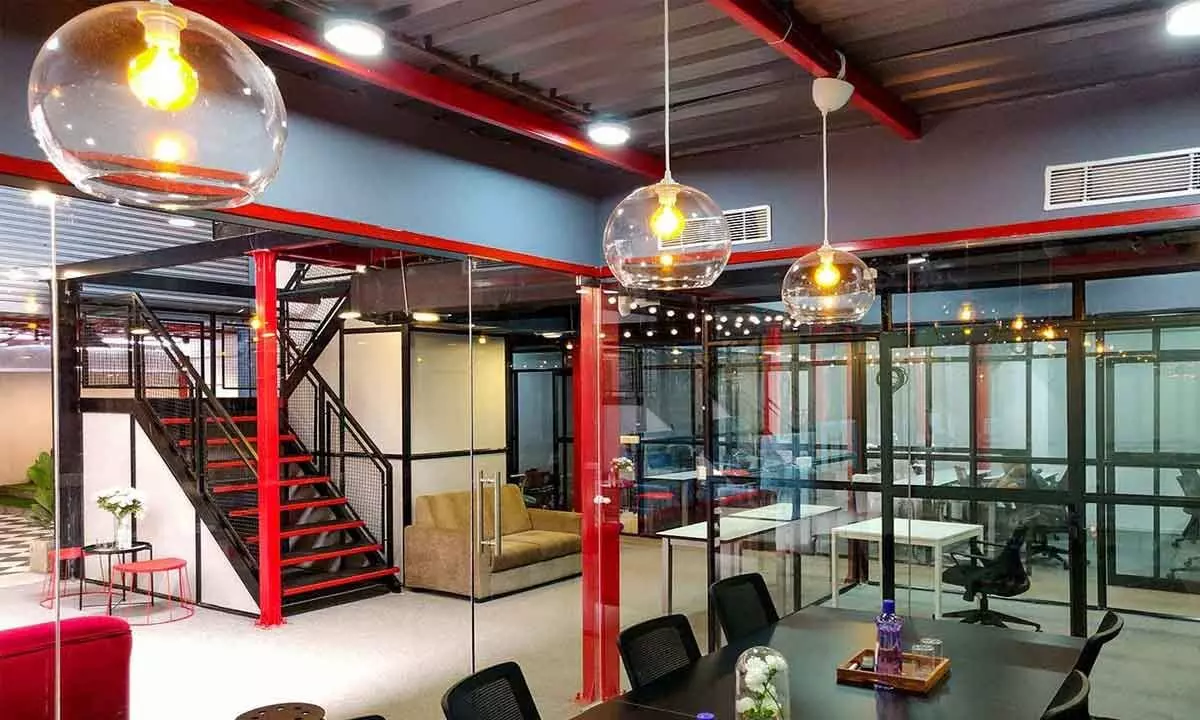Freelancers, startups drive demand for co-working spaces in B’luru
Many entrepreneurs opine that co-working spaces are helping them in crucial networking
image for illustrative purpose

Bengaluru, which is hailed as a cradle of startups, is witnessing a trend of startups opting for more flexible offices known as co-working spaces. The demand for co-working spaces 2023 is increasing in the city. Bengaluru houses the world’s largest co-working campus in HSR Layout.
Flexible offices or co-working spaces are coming in handy for startups as they save a huge investment of renting, leasing or purchasing the office space. They provide office space as per the requirement, budget and time. As the trend is catching up, entrepreneurs are explaining that co-working spaces are also helping in crucial networking.
Co-working presents flexibility in terms of leasing contracts and a variety of options. Geographic flexibility is also a significant asset as co-working spaces are available in premium and easily accessible locations. Startups can be free of such administrative and operative functions and focus on business.
Hence, co-working can complement the flexibility they desire. Not just processes, but co-working can also substantially reduce the initial costs associated with traditional office leases, rent, utilities, maintenance, and office furnishings.
Ashish Agarwal, Co-founder & CEO of Enzyme Office Space said, "The rising demand for flexible offices in India, driven by changing work habits and the growth of startups and freelancers, has made Bengaluru the top city with 39 per cent of operational flex space since 2018, followed by Delhi NCR at 17 per cent.”
Membership plans enable startups to pay only for needed space, reducing leasing and maintenance costs. Co-working spaces bring professionals from various fields together, fostering networking, collaboration, and potential partnerships, he stated.
Ashish Agarwal further explained that startups often begin in co-working spaces for flexibility and transition to private offices as they expand. These offerings make co-working spaces popular for freelancers, startups, remote workers, and established businesses seeking flexible workspaces.
Shesh Paplikar, Founder & CEO of BHIVE Workspace, said: “In terms of demand, 2022 saw a significant surge in signups because of pent-up demand and 2020 and 2021 were slow. Once the pandemic was contained many organisations wanted to return to office. 2023 is also witnessing a lot of new supply in the co-working industry.
However, the demand has been slightly on the slower side in 2023 when compared to 2022, which was phenomenally good, so overall it seems slightly muted. Having said that, there are still a lot of good, stable companies that are expanding, he opined.
Startups are a bit more cautious at the moment as there is a funding winter. If their burn rate is very high, they are being forced to reduce the burn rate before they can raise more money, which is also leading to a standstill in hiring or layoffs. On the brighter side of things, a lot of global companies are still hiring in India though they are laying off resources abroad. So, the industry is still optimistic about the demand in 2023, Shesh Paplikar explained.
In general, using co-working space increases the agility of any company, not just a startup. However, given that startups usually want to be more agile, scale up or down, pivot around, change strategies, he said.
BHIVE also has the world's largest co-working campus, the BHIVE HSR Campus in Bengaluru. Inspired by Google, BHIVE has created a world-class office space that offers additional amenities beyond just office spaces such as cricket, football, basketball and gym. BHIVE also organises a lot of startup-related events, seminars, networking, investor meets and mentorship programs that add value to the startup ecosystem, Shesh Paplikar said.

